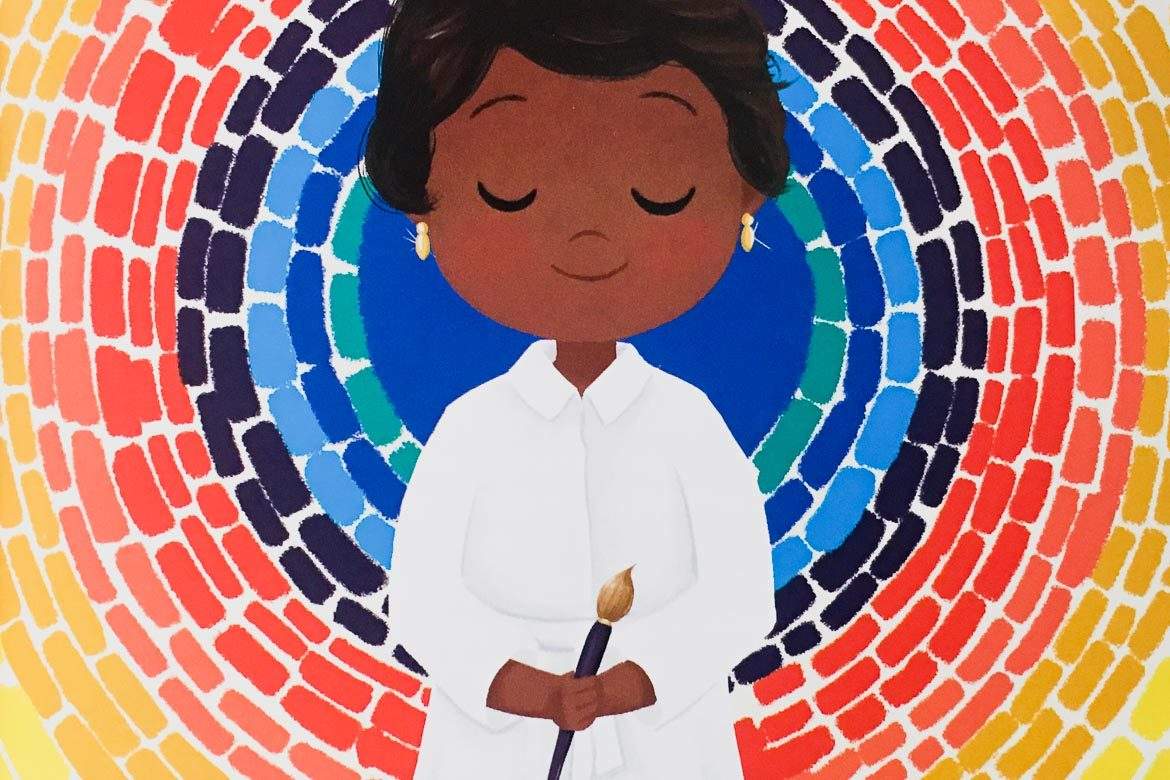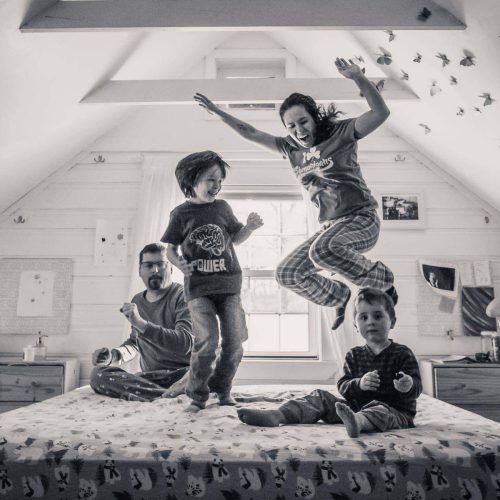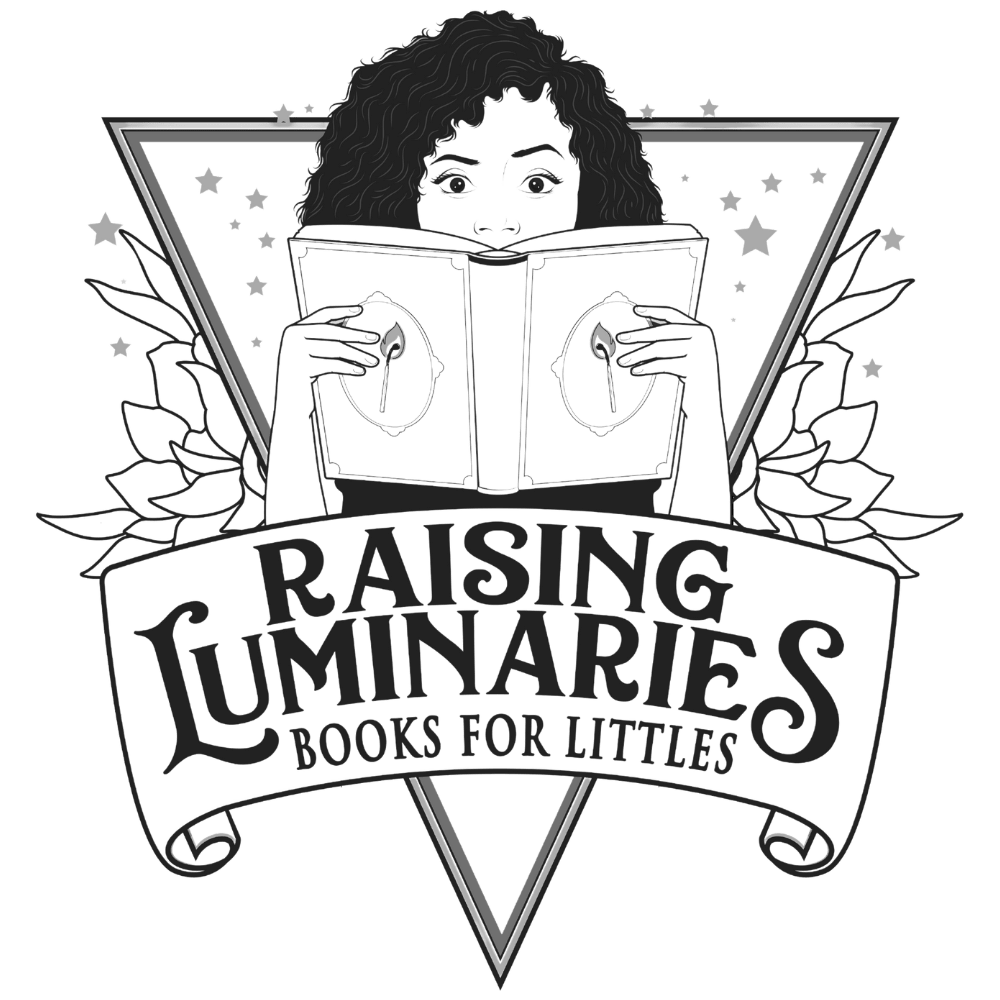[Image Description: Feature of an illustrated portrait of Alma Woodsey Thomas from an inner page of ‘Little Leaders: Bold Women In Black History,’ by Vashti Harrison]
In this post: Pictures books to inspire young history buffs – Stories of Black Women in American history. Bonus – learn to identify 3 common ways authors whitewash history.
I’m not Black. As a non-Black person of color, raised in the US, I’m bound to miss some things. I’ve done my best to boost the voices of Black femmes, but feel free to comment if/when I screw up. This a working list, imperfect (and incomplete).
Raising Luminaries is free and accessible for readers who can’t afford a paywall. Posts may contain affiliate links, which allow me to earn a commission at no extra cost to you. Check out the full affiliate disclosure along with my statement of accountability. If you’re into supporting libraries (please do!) more than consumerism, you can also support my work directly:
Donate or shop using an affiliate link via| Paypal | Venmo | Ko-fi | Buy a t-shirt | Buy a book
Sparking Curious Kids
Our kids are racist. And so are we.
We don’t have to be – we can fight it. We can fight the bias drilled into our kids from the media, from our institutions, from our own personal, subconscious bias.
To start – we need to re-frame how we see people of color – how women in particular have been held back by our kyriarchy. (You could argue we should focus on Indigenous/Trans/disabled/etc. women, and we should – but for now, Black History Month is an easy start).
To get kids truly inspired by history, you need something that entices your kids to ask questions, to get curious about the past – and hopeful for the future. We need stories that connect all kids (even white-presenting boys like mine) to the stories of women who shaped our nation. No more dry factoids of dates and dry, dreary illustrations. No more overwhelming despair and powerlessness.
So after a few years of searching…I’ve got a pretty kick-ass collection to share with you.
But before you get started – stick around for the whole thing. To fight white supremacy at story time – you’ll need to learn how to identify common ways authors whitewash mainstream children’s books. (Keep reading!)
Crappy stories do active harm
After last year’s election, publishers are finally boosting the stories of more Black heroes. Even Chelsea Clinton made a half-assed attempt at diverse representation (COUGH opportunist …COUGH cash-grab COUGH). We’re seeing more filler books. You’re left to sift through more time-wasters.
I can’t stress this enough – do not force your kids to read boring, redundant history books. Nothing shuts down curiosity, acceptance, and compassion like boredom. Wasting your time with shitty, whitewashed books is an act of white supremacy. It derails us from the stuff we need to grow stronger, smarter, and kinder.
Captioned age ranges are for when my sons were able to understand and enjoy each story. Your mileage may vary since every kid is different. Stories validating lived experiences and normalizing racial diversity is vital, but for this post, we’re focusing on validating & insightful stories on the experience of Black women and girls in American history.
*Asterisk-marked books are #OwnVoices stories written by Black women.
You Might Also Like: Do Your Boys Know About The Uhura Test? – Kickass Books Normalizing Girls Of Color
Sparking Empathy With Fiction
Though the eyes of young Black girls, my boys are able to see how systemic racism affects real kids. Rather than filling readers with overwhelm in despair, these stories based on history and lived experience demonstrate the importance of anti-racism work, the urgency of maintaining the fight, and gives kids a sense of power showing that they, too, have a responsibility to carry that torch.
Lillian’s Right To Vote, *Auntie Luce’s Talking Paintings
![]()
*A Sweet Smell of Roses, Ruth And The Green Book, Juneteenth For Mazie
![]()
*This Is The Rope, Quickest Kid In Clarksville, *The Other Side
![]()
Young Freedom Fighters
The Story of Ruby Bridges, *Child of the Civil Rights Movement, The Youngest Marcher
![]()
*Little Melba And Her Big Trombone, Let The Children March
You Might Also Like: Books About Non-Violent Resistance For Courageous Kids
Following In The Path Of Firebrands
There’s nothing worse than a bland biography full of dates and names to turn little kids off to learning. At this age, kids want inspiration, they want super heroes who struggle and survive and stand up in glory even when the odds are against them.
These aren’t 100% vetted for historical accuracy, but picture-book biographies spark curiosity in little minds and encourage them to learn more. Stories like these make Superman pale in comparison, and inspire my kids to run through the house screaming, “I AM HARRIET TUBMAN! I AM BRAVE!”
*Voice of Freedom, *Little Leaders: Bold Women In Black History, *Someday Is Now
![]()
*Let It Shine: Stories Of Black Women Freedom Fighters, Minty
I Am Harriet Tubman (for ages 4+, cover not pictured) is another one of our favorites – slightly more engaging than ‘Minty.’
![]()
Sing It Loud
For every girl of color who’s been told to stay quiet, that her voice doesn’t count, that nothing she has to say matters, she needs to see a loud woman claiming space and visibility. For generations, Black performers have used the stage to open the eyes of white fans to inequality. They’ve kept their voices raised even when reviled, insulted, silenced, and threatened. They’ve used their power and influence to fight for desegregation, voting rights, and community crises. Music continues to be one of the few spaces where Black women are heard, and they’ve used those voices to enact change in courageous ways.
Josephine, Bessie Smith & The Night Riders, * Harlem’s Little Blackbird.
*Asterisk-marked books are written by Black women.
![]()
You Might Also Like: All The Single Mamas – Triumphant Kids Stories Appreciating Single Mothers
Calculating Genius
Pioneering doctors, mathematicians, and astronauts, oh my!
The Doctor With An Eye For Eyes, Hidden Figures (picture book version), and *Mae Among The Stars.
The Moon Over Star (not pictured) is another beautiful book featuring Mae Jemison about changing generational values, best for older kids (ages 6+)
![]()
The Girl With A Mind For Math, Counting On Katherine
Biographies of Black Woman Authors
(I’m still screening books for this section – gimmie a minute)
Zora Neale Hurston And The Chinaberry Tree, Maya Angelou, Yours For Justice, Ida B. Wells
Caveat: ‘Maya Angelou’ contains a good deal of white-washing, and the makers have been known to write about Nazi-sympathizers (Coco Chanel). For now, it’s the only children’s book about Angelou we can find, and my kids adore the illustrations. Also, it briefly mentions the assault and abuse she was victim to as a child.
You Might Also Like – Tenacious Instigators: Biographies Celebrating Disabled Heroes
Kids Books Are Whitewashed – Learn to spot subtle supremacy
STEP 1: STOP CENTERING WHITE DUDES
Let’s discuss white saviors!
It’s just unnecessary, misleading, and more than a little silly to center a white man in stories about the fight for civil rights and racial justice.
If you pick up ‘Sweet Land of Liberty,’ (which features Marian Anderson on the cover) you’d think this book would be about the discrimination and obstacles Anderson encountered in her career, or at least the tumult surrounding her rendition of ‘My Country, ‘Tis of Thee’ in 1939 at the Lincoln Memorial.
Nope!
It’s about a white dude and how instrumental his white savior work was to Anderson’s success – as if she was some nobody who just showed up that day, and not one of the most celebrated singers in American history.
What self-defeating nonsense. If Oscar Chapman truly was an accomplice for civil rights (he sounds like a great guy, but come ON) – if he worked his whole career to boost the visibility and agency of people like Marian Anderson – would he really want a book about this event to be about him?
White accomplices have a place in books about the fight for civil rights – a place of honor and appreciation. But – it’s in the background.
‘Blue Sky, White Stars‘ and pretty much anything by Kadir Nelson shows does this well, with white accomplices standing in solidarity WITH or behind Black folks. In a single page of text, ‘Little Leaders‘ provides a more accurate and empowering history of Anderson’s accomplishments.
STEP 2: STOP EXCUSING OPPRESSORS
Being a ‘nice’ slaver doesn’t make slavery okay. You don’t get points for exploiting other humans nicely.
From ‘Phillis’s Big Test,’ “Her first winter was so very cold and awful. She survived only by the kindness of her masters.”
Maybe Phillis’s first winter wouldn’t have been so cold and awful if she wasn’t KIDNAPPED AND SOLD AS A SLAVE. She didn’t survive because of her enslavers, she survived DESPITE them.
For more problematic literally sugarcoating slavery, look to ‘A Fine Dessert,’ which inspired the hastag #SlaveryWithASmile (coined by BLM Activist Leslie Mac) in a detailed article by Kenrya Rankin from Colorlines. In another, Demetria Lucas D’Oyley from The Root shows us another horrific example of whitewashing in ‘A Birthday Cake For George Washington.‘
This ‘good’ slavery story is common from white authors – another reason why we need to read books by Black authors.
You might also like: Kids Books by Black Women:#OwnVoices Authors & Illustrators
Stay Curious & Stand Brave & Support Women of Color
Support these resources via Paypal | Venmo | Ko-fi | Buy a t-shirt | Buy a book







































6 comments
Thank you for these resources! Do you have a curated list of books for younger-than-preschool age?
Off the top of my head – Vashti Harrison has a board book series (Dream Big, Little one & Think Big, Little One)
I love your book lists, and always check your site before buying new books for my kids. Thank you for the work you do! Since you mentioned a problematic book about Marian Anderson, I was just wondering if you have seen the book When Marian Sang, which IMO is a great introduction to her life for kids.
Thank you! I’ll check it out!
Hi Ashia, first – I’m loving your book lists! I was directed to your website when I was looking for a new resource for kid books after the member rules for the Facebook group Decolonize Homeschool changed. One thing you may want to look into is the I am Rosa Parks book, I remember this specifically being called out as problematic on DH due to the author, Brad Meltzer – unfortunately I can’t recall the exact details but it may be worth digging into. Keep up the great work – I can’t wait to find more literary treasures here!
Hi Christen!
Thank you for pointing that out – I’ll make a note in the post. Meltzer’s work is hugely problematic – I’ve discussed his issues with whitewashing in several of his books in the BFL Facebook group (you can check out some of the posts on I Am Martin Luther King and I am Sacajawea, as well as his tendency to throw all women under the bus by claiming the women he highlights are ‘not like the other girls.’ Blech.
That said – I include this book because thematically, it executes a message no other books on Parks has (yet). And this sucks, because we need more books written by Black women – but most don’t have the resources to create the kinds of books that every library is willing to carry. His Ordinary People Change The World series is super whitewashed – but it’s also super EFFECTIVE at onboarding fragile white families, and helping them over that first tenuous step on talking about racism. He speaks fragile white dialect, basically, and is particularly effective at gently (if imperfectly) collecting his people.
What I’m relying on this the build-up of courage. Nervous white parents who start with a Meltzer book, and (this is key) get riled enough to keep reading more radical books. This might not work, and it’s imperfect. That’s why I’m ALSO trying to highlight work by Black women (even if some of the books are not my favorite, and some of them might turn off white readers and slam slightly open minds closed). But it’s worked for some of our BFL’ers.
Does that make sense? What do you think?